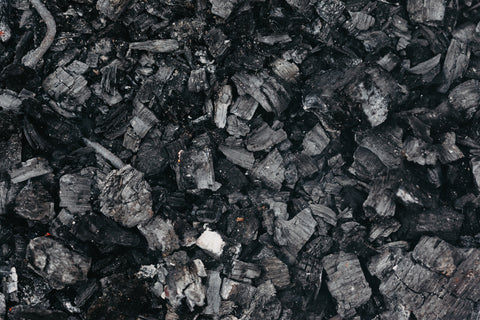Carbon serves a very special purpose in the air filtration process. Its absorption power singlehandedly cleanses the air of cigarette smoke, cooking odors, and pet odors, and no other filter has the ability to do this. How is this possible?
It is the only element that can adsorb or bind gases and molecules, which makes it perfect for trapping volatile organic compounds (VOCs) and other harmful chemicals in the air. In this article, discover why you should never underestimate carbon air filters-- it's time for a full breakdown of how this filter functions to benefit your air quality and health.
What Is Carbon?

Carbon, as an element, was first discovered in prehistoric times. It is the fourth most common element in the universe, and it's no wonder that we find it so often on Earth -- it makes up about 0.03% of our planet's mass! It is a brittle, black solid that is often found in the Earth's crust. Carbon was used by early humans in the form of charcoal, for the purpose of making fire.
Multi-Purpose
Carbon has since been used for many other purposes, including in the form of graphite (for writing), coal (as a source of fuel), and so much more. Among these purposes, it has one other surprising benefit: The power to neutralize odors.
Super Adsorbent
A carbon air filter is made of tiny carbon fibers fused together which is known as "activated carbon"; charcoal that has been treated with gas to open up its pores. Activated carbon is much more absorbent than regular charcoal. The activated carbon in a carbon air filter can adsorb many different types of molecules, including VOCs and other hazardous gases.
One of the most common applications for carbon is in the HVAC industry. Carbon air filters are used for air purifiers, refrigerators, range hoods, and more. Carbon air filters are also used extensively in gas masks and respirators. They can absorb smoke, gas, and other VOCs from the air.
What Do You Need A Carbon Air Filter For?
Primarily, the main purpose of a carbon air filter is for complete odor removal/neutralization in an indoor space.
Respiratory Health
As the air purifier stimulates the room's airflow, the carbon filter is the first in line to trap and capture large airborne particles. It will prevent lint, dust, and pet hair from reaching the HEPA filter and clogging it up. However, what it does most of all is capture odor molecules such as cigarette smoke, cooking odors, and pet smells.
Odor Neutralization
The carbon filter will work to absorb these molecules and remove them from the indoor space, cleansing the breathing air and removing odor molecules. If you've been exposed to pollution or wildfires, they will also assist with removing the airborne contaminants as a result.

How Do Carbon Air Filters Work?
Now that you know what carbon air filters are and what they do, let's take a closer look at how they work.
We know that when carbon is exposed to gas, its pores open up on the surface. These pores are what allow the absorption of odor molecules. When the carbon air filter is new, it has a very high absorption capacity. However, as time goes on and the carbon filter becomes saturated with pollutants, its absorption capacity decreases. This is why it's important to replace your carbon air filter regularly, depending on the type of filter and how often it's used.
Replace Frequently
Most filters need to be replaced every three to six months, but this can vary depending on the quality of the filter, the amount of use, and the type of pollutants it's filtering. If you live in an environment with a lot of pollution (from power plants, factory farms, etc.) or wildfires, you will need to replace these filters more frequently.
Protect Your Home
Even in a standard household, carbon's power should not be underestimated. The chemical compound of carbon when it's activated can remove a variety of VOCs, including benzene, acetone, formaldehyde, and more. VOCs can be found in so many household products, including paint, air fresheners, and cleaning supplies. By using a carbon air filter in your home, you can help to reduce your exposure to these harmful pollutants.
An Overview
In conclusion, carbon air filters are an important part of any indoor air purification system. They work to remove large particles, VOCs, and other hazardous gases from the air. By using a carbon air filter in your home, you can help to improve the quality of the air you breathe and reduce your exposure to harmful pollutants. Regular replacement of the carbon filter is essential for optimal performance.
If you are in need of carbon air filters, and cannot find the one to "fit" your specific air purifier model, know that you could purchase large sheets of activated carbon that can be cut to fit any size. At www.LifeSupplyUSA.com, you could purchase a sheet of carbon measuring 16" x 48" very inexpensively.
Be sure to check the LifeSupplyUSA carbon air filter catalog to see if a precut filter will fit your air purifier or refrigerator model.





